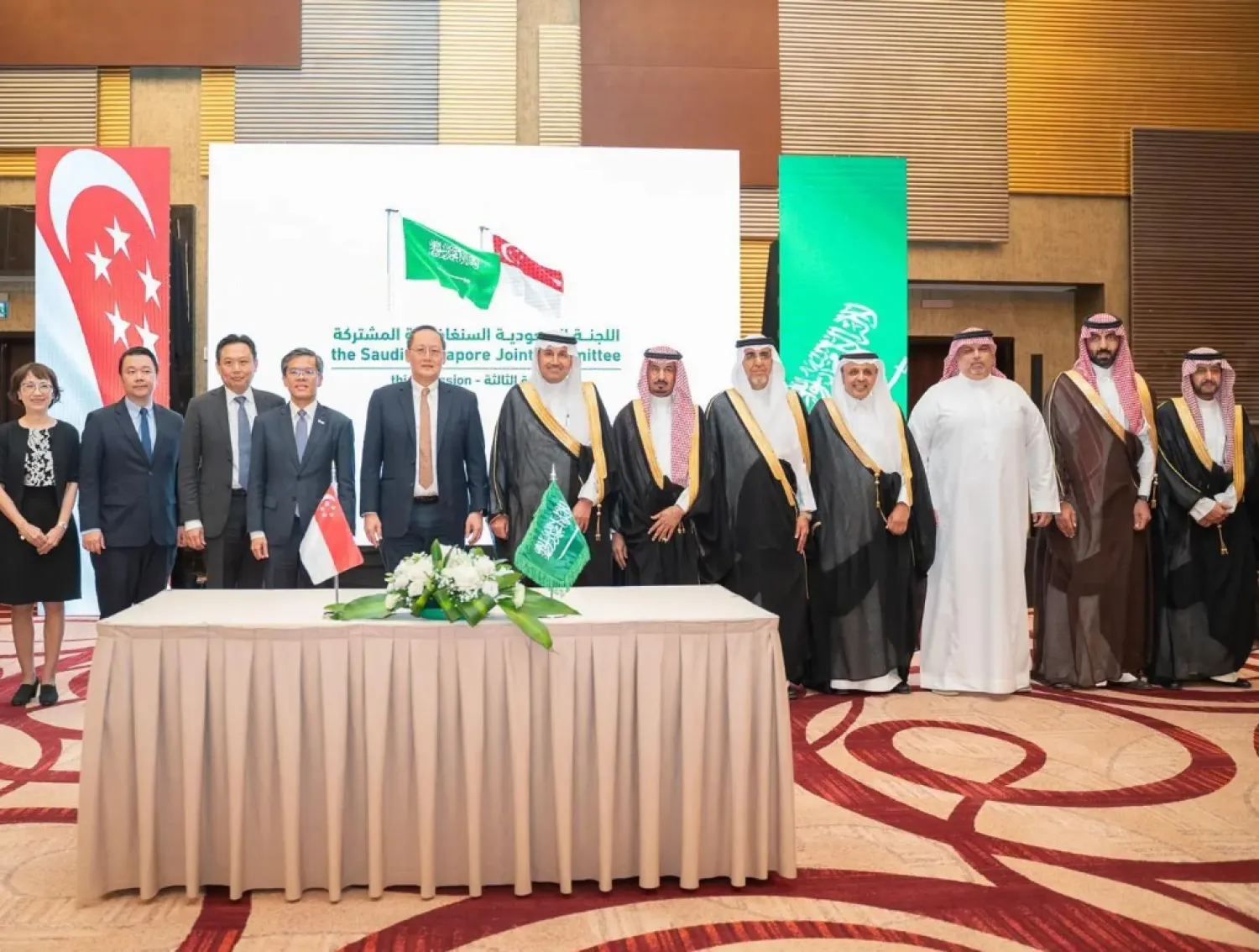The Saudi-Singaporean roundtable meeting was held in Riyadh on Wednesday to review the latest updates of Vision 2030 and remarkable achievements, highlighting the unprecedented transformation in the Kingdom.
The meeting was attended by the Prime Minister of Singapore, Lee Hsien Loong, Saudi Minister of Commerce Majid bin al-Qasabi, Minister of Investment Khalid al-Falih, various Saudi ministers, officials, and CEOs of major companies. It also included Saudi and Singaporean representatives of the government and private sectors.
They discussed investment partnership opportunities in the energy, financial, transportation, logistics, and infrastructure sectors.
The meeting also stressed the importance of cooperation in new and innovative projects to support the economic fields in the Kingdom and Singapore and collaboration in renewable energy and green hydrogen.
It addressed increasing the volume of supporting logistics, infrastructure, human capital development, and cooperation in the entertainment industry.
The roundtable meeting aims to enhance the two countries' investment relations, strengthen economic and investment ties between the Kingdom and Singapore, develop qualitative assets for entrepreneurial companies, and support the private sector to take advantage of opportunities.
Furthermore, Saudi Arabia and Singapore signed seven MoUs in several fields during Tuesday's third session of the Saudi-Singapore Joint Committee held in Riyadh.
The Saudi Minister of Transport and Logistic Services and Singapore's Minister of Manpower Tan See Leng co-chaired the session.
Speaking at the session, Jasser said the Kingdom and Singapore enjoy a robust bilateral relationship spanning nearly six decades.
He added that the joint committee confirms the strong links between Saudi Arabia and Singapore, reiterating that the efforts have flourished after signing several agreements and MoUs covering various areas.
The Minister noted that these joint efforts have enhanced the investment and trade relations between the two countries at all levels in the public and private sectors.
Jasser highlighted the progress of Saudi-Singaporean cooperation, including in the economic, investment, and commercial fields.
He said the trade volume between the two countries significantly increased by around 50 percent in 2022 compared to the previous year, noting that the meeting continues successful efforts and cooperation.
Jasser underlined the importance of enhancing economic and developmental relations between the two countries, facilitating the movement of imports and exports of goods, and attracting investment opportunities in industry and the digital economy.
He also voiced keenness for enhancing cooperation in various areas, noting that he looks forward to implementing infrastructure development projects to improve transportation and facilitate the movement of passengers and goods between the two countries.
The Minister highlighted the significant transformation the Kingdom is witnessing in all sectors under the leadership of the Custodian of the Two Holy Mosques, King Salman bin Abdulaziz, and Crown Prince Mohammed bin Salman.
Acting Secretary General of the Federation of Saudi Chambers Walid al-Arinan explained that the Saudi and Singaporean economies stimulate cooperation and economic partnership and promising opportunities to double trade and investment in light of the Vision 2030 initiatives.
In addition, the Federation of Saudi Chambers and the Singapore Business Forum signed an MoU, and the Saudi Standards, Metrology, and Quality Organization (SASO) also signed an agreement on standardization and coordination.
Meanwhile, the Ministry of Investment signed an MoU for cooperation and facilitation of investments between Singaporean and Saudi companies.
Also, the MoUs include training and development opportunities in the Kingdom and investment opportunities in the education sector.
The session witnessed the signing of an MoU in ports, transportation, and logistics services and an MoU to develop investment in the industrial sector in Riyadh and the health and fitness sectors.









